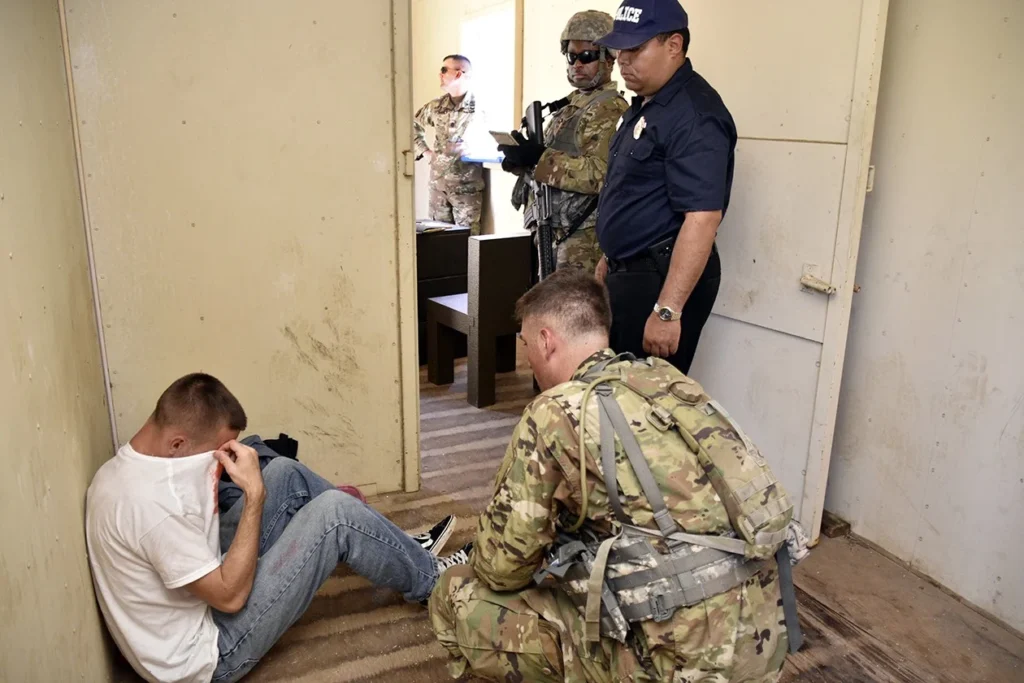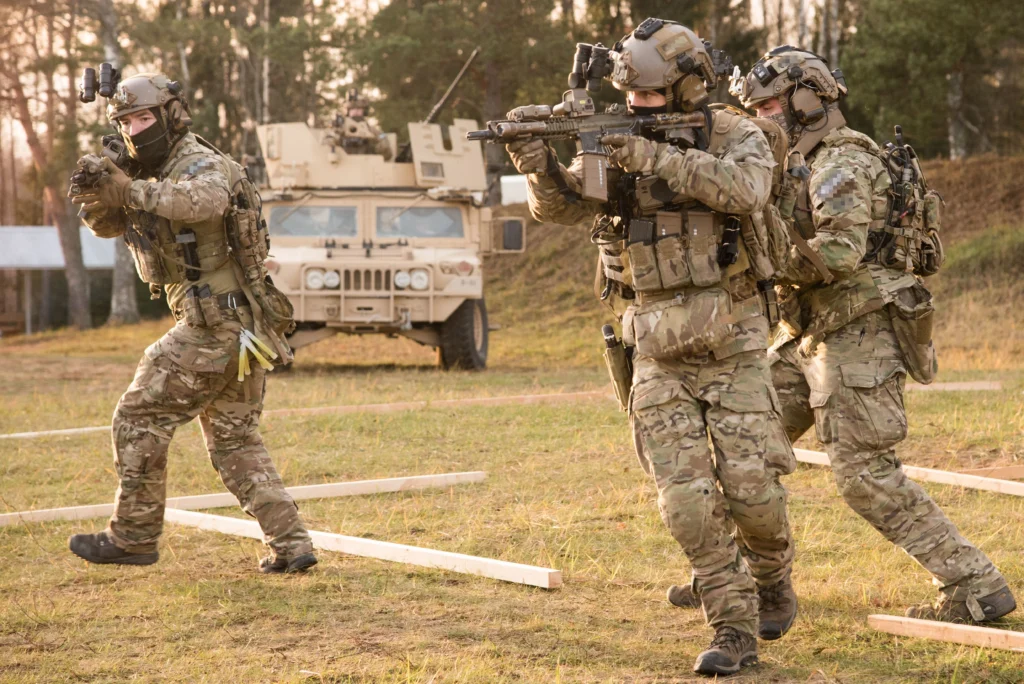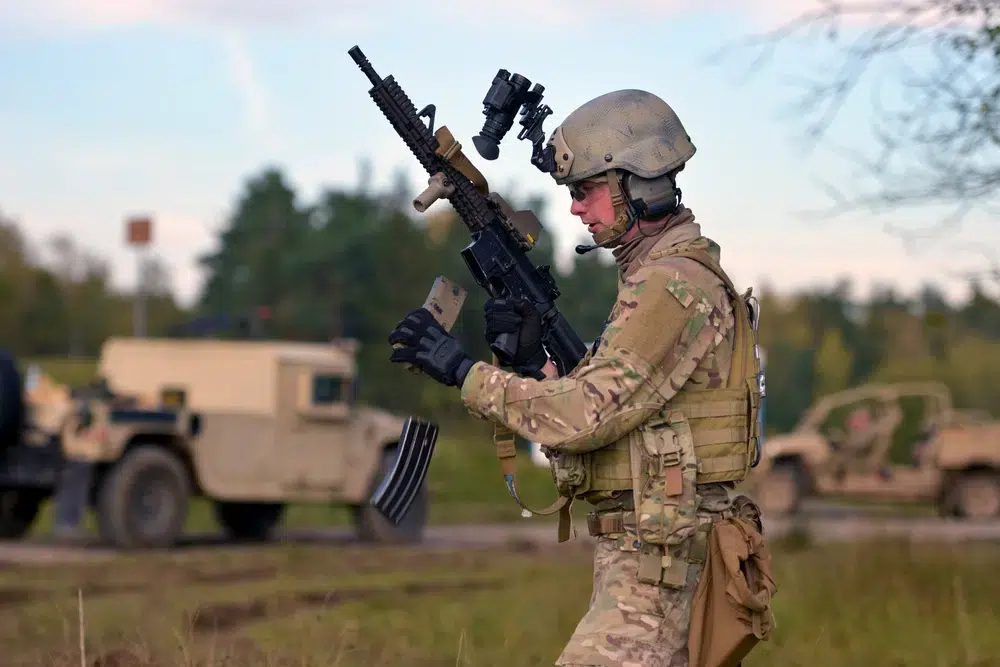Editor’s Note: This article has been updated to clarify that the proposed cuts are part of a larger Army restructuring effort and not a cost-cutting measure as initially stated.
The Army has rolled out a plan that may cut as many as one in 10 special operations billets in what an Army representative described to Sandboxx News as part of a larger restructuring effort. But lawmakers and Spec Ops advocates are not to let it happen without a fight, saying these positions are critical for dominance on complex future battlefields.
The plan to make deep cuts to U.S. Army Special Operations Command was confirmed in early October by the Wall Street Journal, which reported that 3,000 jobs could be on the chopping block. Indicators of such a move had been made public in May through Army budget projections from 2025 to 2029. Officials at the time said the issue was one of shifting priorities: more resources were needed for large-scale combat operations rather than the special operations-intensive counterterrorism work of prior wars. Army recruiting struggles also factor in: the service missed its 2023 recruiting goal by about 10,000 new soldiers, after falling 15,000 new recruits short in 2022. Fewer positions to fill means a slimmed-down recruiting goal that may be easier to achieve.
While the Journal reported that the pending reductions would include Green Berets, Task & Purpose later reported that would not be the case: Defense Secretary Lloyd Austin had expressly directed the Army and U.S. Special Operations Command to leave the Green Berets alone.

Since that news broke, Army officials including service undersecretary Gabe Camarillo met with lawmakers to discuss their planning. According to an Army Times report about the meetings, Army leaders said they plan to focus cuts on currently vacant billets, rather than reducing manned jobs. The cuts, the report added, would be made to enabler positions, and are designed to eliminate what Army Secretary Christine Wormuth calls “overstructure” in an effort to allow the service to complete necessary reorganization or restructuring.
None of that rationale makes the prospect of cuts any more palatable to the Special Operations Association of America, a veteran-run nonprofit that advocates for the Spec Ops community. The organization’s executive director sent a letter to lawmakers on October 11 saying that the non-operator billets targeted in the cuts were exactly the ones the military needed to retain to stay proficient.
“The proposed cuts take aim at our civil affairs units, psychological operations, and intelligence enablers – the very core of USASOC’s success,” Cook wrote in the letter. “These elite squads, honed through rigorous training, possess skills vital for neutralizing imminent threats. Diminishing their ranks equates to a critical loss of proficiency, knowledge, and strategic memory; putting our national defense at risk.”
Cook pointed to Ukraine, the recently erupted war in Israel, and the conflict hotbed of Africa as regions that demand Army special operations skill sets.
“USASOC has acted as a bulwark, preventing governmental collapses and full-scale enemy occupations,” he wrote. “Their unique blend of linguistic, cultural, and diplomatic acumen empowers them to collaborate efficiently in ambiguous environments.”
Related: The expert US special operators who could help free hostages in Israel

In an interview with Sandboxx News, Cook, who spent a decade in Army conventional and special operations units, expanded further on his concerns about the proposed cuts. He pointed to several of SOCOM’s five principles known as “SOF Truths:” Special operations forces cannot be mass-produced, and they cannot be created ad hoc after emergencies occur. With a training pipeline of one to three years to produce a special operator, capabilities can’t be rapidly regrown when a pressing need arises, he added. (SOCOM is the unified command under which all special operations units of the U.S. military fall.)
“When I look across the geopolitical spectrum right now, it doesn’t make sense to me,” Cook said. “You’re already in a recruiting retention crisis. And there’s conflict that’s popping up all over the world. Why would you cut your most valuable people?”
Information operations (IO), among the smallest specialties within USASOC, is a rumored target of the cuts, Cook said. Yet, he added, IO and psychological operations are among the military’s best non-kinetic options to deploy against China, the Defense Department’s primary concern and pacing threat.
Nor does it improve the picture, he said, that many of the targeted billets are vacant ones. Already, USASOC is affected by the larger Army’s struggles to recruit and retain talent, Cook told Sandboxx News.

“It’s a great talking point, when you’re getting slammed in the media, to say that [empty billets are being cut,” Cook said. “But you’re still reducing special operations.”
Multiple lawmakers have also joined the effort to halt this force reduction. Rep. Michael Waltz, a Florida Republican and the first Green Beret to serve in Congress, has been outspoken in opposition to the cuts, saying in a recent statement that he’s “stunned and appalled” by the move.
Sen. Joni Ernst, an Iowa Republican and veteran of the Army Reserve and National Guard, also released a statement in support of SOF this month in light of the Wall Street Journal report.
Multiple outlets have also reported that SOCOM itself opposes the Army’s pursuit of USASOC reductions.
All this means the Army will face an ugly uphill battle to achieve the cuts it wants. Congress has a history of vetoing service-supported cuts, cancellations, and divestments, from the Air Force’s beloved A-10 Thunderbolt to underperforming Navy ships. That’s not to say the Army’s plan is dead in the water, though – unprecedented recruiting difficulties and budget-tightening may result in more support for seemingly extreme measures like this one. More details on the Army’s long-term strategy – and how willing leaders are to go to the mat on the force reductions it wants – are likely to come to light between now and the fiscal 2025 budget proposal next spring.







